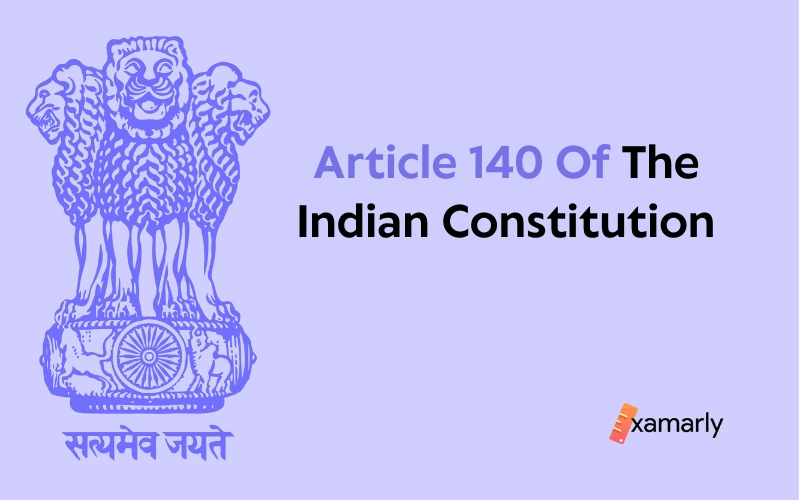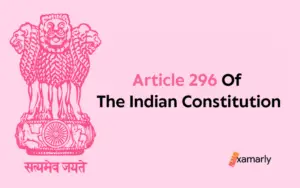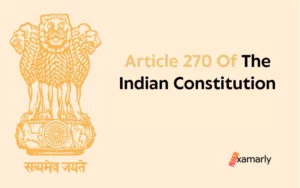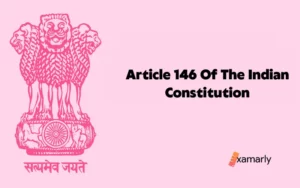The ancillary powers of the Supreme Court of India are the primary focus of Article 140 of the Indian Constitution.
According to the concept of “ancillary powers,” a legislature that has the authority to legislate on a certain subject also has the authority to act on any ancillary matters that are linked to the primary subject.
This article is worth reading for the UPSC Exam as it is a part of the Indian Polity of UPSC CSE Syllabus.
What Is Article 140 Of The Indian Constitution?
The constitutional provisions of Article 140 are as follows –
In order to allow the Supreme Court to exercise the jurisdiction granted to it by or under this Constitution more efficiently, Parliament may provide by law that the Court be granted any supplemental powers that are not in conflict with any of the provisions of this Constitution.
Note: Originally drafted as Article 116, Article 140 gave Parliament the authority to broaden the Supreme Court’s scope of authority. On May 27, 1949, the Assembly approved and enacted the Draft Article.
What Are Ancillary Powers?
The powers that assist the expressly granted powers are referred to as incidental or ancillary powers. These express powers to legislate include the ability to additionally pass laws on ancillary issues, which is what is meant by the term “ancillary powers.” The proper execution of the expressly granted legislative powers depends on the existence of such a power. For instance, the ability to legislate on banking would also include all related abilities to legislate on issues like the roles played by banks, the make-up of their boards, their interactions with the RBI, etc. Similar to this, the ability to legislate on an entry dealing with forests would include the ability to plan and regulate ancillary problems like afforestation and deforestation.
Conclusion
Article 140 revolves around the ancillary powers that are granted to the Supreme Court of India. The said Article is contained in Part V of the Constitution under Chapter IV.
In India, the Supreme Court (SC) is the highest court. It ensures that everyone’s rights and freedoms are protected under the law, as outlined in the Constitution. It is for this reason that the Supreme Court has another name: the Guardian of the Constitution.
For Further Readings:
| Article 142 Of The Indian Constitution: Complete Justice | Article 184 Of The Indian Constitution |
| Article 137 Of The Indian Constitution | Article 138 Of The Indian Constitution |
FAQs On Article 140
What Are The Ancillary Powers Of The Supreme Court Of India?
According to Article 140, Parliament may grant the Supreme Court any additional powers by law that it deems essential for it to carry out its constitutionally mandated duties. However, these supplementary powers must not conflict with any other provisions of the Constitution.
Which Article Of The Constitution Deals With The Supreme Court’s Ancillary Powers?
Article 140 deals with the ancillary powers of the SC. Under the said Article Parliament was authorized to grant such powers and hence is able to increase the breadth of the jurisdiction of SC.
Which Part Of Indian Constitution Speaks About Article 140?
Article 140 is outlined in Chapter IV (The Union Judiciary) of Part V of the Constitution.






